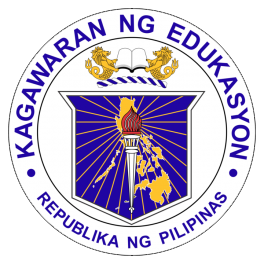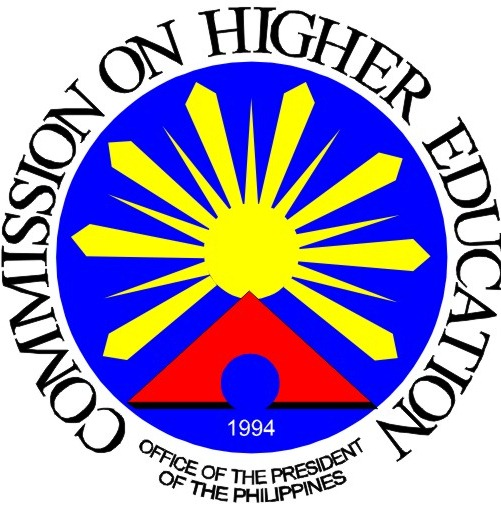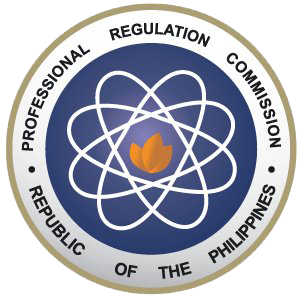Register of Qualifications
Search Qualifications
| Qualification Code | Qualifications | Descriptor | Level | Authority Granting Agency |
Instrument (PSG/CMO/Board Resolution) |
Date of Authorization |
|---|---|---|---|---|---|---|
| Patient Care Services | The PATIENT CARE SERVICES comprises of the following qualifications: 1) Caregiving NC II and 2) Health Care Services NC II | TESDA | April 26, 2017 | |||
| Tourism Development Services | The TOURISM DEVELOPMENT SERVICES comprises of the following qualifications: 1) Tourism Promotion Services NC II and 2) Events Management Services NC III | TESDA | ||||
| Tourism Hospitality Supervision and Leadership | The TOURISM HOSPITALITY SUPERVISION AND LEADERSHIP comprises of the following qualifications: 1) Events Management Services NC III 2) Housekeeping NC III and 3) Food and Beverage Services NC III | TESDA | ||||
| Welding and Fabrication Technology | The WELDING AND FABRICATION TECHNOLOGY comprises of the following qualifications: 1) SMAW NC I 2) SMAW NC II and 3) GMAW NC II | TESDA | October 7, 2016 | |||
| 60841 | Doctor of Veterinary Medicine | The DOCTOR OF VETERINARY MEDICINE is a professional course involved in the prevention, diagnosis, treatment and control of animal diseases including terrestrial and aquatic animals. The program includes courses on general education, basic science, zootechnics (animal science) and veterinary medical science including professional skills that the graduates need to be able to carry out the duties of safeguarding animal health, public health, the environment, and to be capable of utilizing effectively the tools of communication in the pursuit of further knowledge and in information dissemination of such in both local and international settings. Graduates of the program should be able to:1) Understand and apply biological principles and mechanisms underlying animal production, health and diseases. 2) Apply diagnostic methods and interpret results for accurate disease diagnosis. 3) Prescribe and implement treatment to remedy diseases and abnormalities of animals or prescribe termination of cases, as necessary. 4) Develop and formulate plans and programs for prevention and control of diseases. 5) Design and engage in social and economic entrepreneurial ventures in the field of practice. 6) Generate and share knowledge relevant to specific fields in the study of agriculture. 7) Formulate and implement agricultural development plans and programs. | VI | CHED | CMO No. 01, s. 2018 | 1/12/2018 - Present |
| 60811 | Bachelor of Science in Agriculture | AGRICULTURE is the science and practice of inclusive production of food, fiber and other products. It covers six (6) fields of study namely: crop science, animal science, soil science, crop protection, economics and marketing and agricultural extension and communication. Graduates of the program should be able to: 1) Apply the scientific methods in knowledge generation and knowledge application. 2) Understand and apply the concepts of agricultural productivity and sustainability in the context of national, regional, and global developments. 3) Engage in agricultural production and post-production activities. 4) Promote sound agricultural technologies to various clients and in the manpower development for agriculture. 5) Employ relevant tools in information technology in solving agriculture-related problems. 6) Generate and share knowledge relevant to specific fields in the study of agriculture. 7) Formulate and implement agricultural development plans and programs. | VI | CHED | ||
| 60831 | Bachelor of Science in Fisheries and Aquatic Sciences | The BACHELOR OF SCIENCE IN FISHERIES AND AQUATIC SCIENCES program covers the areas of sustainable aquaculture, capture fisheries, post-harvest fisheries, and aquatic resources management. Graduates of the program should be able to: 1) Develop, operate and manage aquaculture production systems. 2) Utilize fisheries resources using innovative fishing methods which are responsible and sustainable. 3) Apply post-harvest practices that are compliant to international standards for food safety and quality. 4) Manage and protect the integrity and quality of aquatic ecosystems and resources. 5) Generate and share knowledge relevant to specific fields in the study of agriculture education. 6) Formulate and implement agricultural development plans and programs. | VI | CHED | ||
| 60821 | Bachelor of Science in Forestry | The BACHELOR OF SCIENCE IN FORESTRY program promotes the scientific conversion and management of forests for judicious and sustainable use of forest products and services. The program covers four (4) fields of study namely: Forest Biological Sciences, Forest Resources Management, Social Forestry and Forest Governance and Forest Products Utilization. Graduates of the program should be able to: 1) Conduct comprehensive assessment and accounting of forest ecosystem services and resources and social processes using appropriate ICT and related tools and methods. 2) Assess climate change impacts, risks and vulnerabilities, and to prepare climate change adaptation, mitigation and disaster risk reduction plan. 3) Formulate, package, implement, and evaluate forest management-related research, development and extension programs, projects and policies. 4) Interpret, assess and formulate forest related policies and law. 5) Use IT and other traditional and modern tools, approaches and methods in problem solving, planning, management and other management activities. 6) Generate and share knowledge relevant to specific fields in the study of agriculture. 7) Formulate and implement agricultural development plans and programs. | VI | CHED | ||
| 60721 | Bachelor of Science in Food Technology | FOOD TECHNOLOGY is a discipline based on the application of science and related fields of study in the conversion of raw materials into safe, stable, palatable and nutritious foods. It includes the post-harvest handling, preparation, processing, packaging, storage and distribution of food to ensure food and nutrition security, safety and the well-being of individuals, families and communities. It also includes the social, cultural, economic, managerial and entrepreneurial, and environmental aspects of food systems as well as the art of food preparation. Graduates of the program should be able to: 1) Demonstrate communication skills (i.e. oral and written) that lead to success in a food technology career including preparation of proposals, position papers, technical reports, communicating technical information to a nontechnical audience, making formal and informal presentations. 2) Explain the functionality of different food ingredients and chemical changes occurring during post- harvest handling, preparation, processing, packaging and storage, including reactions involving carbohydrates, proteins, and fats. 3) Understand the international and local regulations required for the manufacture, distribution and sale of food products, either fresh or processed. 4) Understand the role of microorganisms in postharvest handling, preparation, processing and preservation, packaging and storage with respect to pathogenic, spoilage, and fermentative microorganisms. 5) Understand and apply the principles of engineering as they relate to converting agricultural commodities to the finished products. 6) Understand and apply the principles and various facets of food technology, including sensory evaluation, in practical situations, problem solving and environmental sustainability. 7) Understand and apply the basic elements of sanitation and quality assurance programs to assure food safety. 8) Evaluate the microbiological, physical, chemical, sensory and functional properties of food. 9) Create new product ideas, concepts and procedures leading to innovative food technologies. 10) Generate and share knowledge relevant to agriculture.11) Formulate and implement plans and programs in food technology in support of agriculture. | VI | CHED | ||
| 60731 | Bachelor of Science in Architecture | ARCHITECTURAL EDUCATION provides students with comprehensive knowledge, appropriate skills, and a professional attitude in the practice of architecture together with their total growth and development within the framework of democratic ideals and values, and the promotion of sustainable development and the conservation of architectural heritage within the global context. Graduates of the program should be able to:1) Create architectural solutions by applying knowledge in history, theory, planning, building technology and utilities, structural concepts and professional practice. 2) Use concepts and principles from specialized fields and allied disciplines into various architectural problems. 3) Prepare contract documents, technical reports and other legal documents used in architectural practice adhering to applicable laws, standards and regulations. 4) Interpret and apply relevant laws, codes, charters and standards of architecture and the built environment. 5) Apply research methods to address architectural problems. 6) Use various information and communication technology (ICT) media for architectural solutions, presentation, and techniques in design and construction. 7) Acquire entrepreneurial and business acumen relevant to Architecture practice. 8) Involve in the management of the construction works and building administration. | VI | CHED | CMO No. 61, s. 2017 | 7/19/2017 - Present |
| 60712 | Bachelor of Science in Environmental Planning | ENVIRONMENTAL PLANNING is a multi-disciplinary art and science of analyzing, specifying, classifying, harmonizing, managing and regulating the use and development of land and water resources, in relation to their environs, for the development of sustainable communities and ecosystems. It also refers to activities concerned with the management and development of land, as well as, the preservation, conservation and rehabilitation of the human environment. Graduates of the program should be able to: 1) Articulate the latest developments in environmental planning and allied sustainable environmental design disciplines. 2) Show awareness, understanding and appreciation of professional, social, and ethical responsibility and civil liability of environmental planners. 3) Discuss broad and coherent knowledge and understanding in core planning practices. 4) Demonstrate knowledge pertaining to sound environmental planning, sustainable environmental design, development, conservation and management. 5) Conduct research for planning. 6) Assist, prepare and implement plans for the natural and built environments. 7) Analyze environmental planning issues and problems in the local, regional and global contexts; and possess adequate knowledge of the history and theories of environmental planning. | VI | CHED | CMO No. 60, s. 2017 | 7/19/2017 - Present |
| 60212 | Bachelor of Science in Interior Design | INTERIOR DESIGN is the science and art of planning, specifying, selecting and organizing the surface finishes and materials including furniture, furnishings and fixtures and other interior design elements for the purpose of interior space allocations to suit, enhance and meet the intended function, movement and character for which the interior of the building is designed. Graduates of the program should be able to: 1) Identify, analyze, and solve interior design problems. 2)Formulate and implement design concepts, strategies and/or approaches using new technology in nterior design. 3) Integrate theories, current issues, and design philosophies. 4) Demonstrate knowledge of history of arts and period styles, materials of décor, furniture design, building construction, utilities and legislation, and color studies. 5) Function and assimilate within a collaborative framework effectively. 6) Articulate design proposals through visual, oral, written and virtual communication. 7) Practice ethical professional values. 8) Perform according to interior design global standards. 9) Exhibit sensitivity to cultural, social, and environmental issues and advocacies. | VI | CHED | CMO No. 44, s. 2017 | 5/17/2017 - Present |
| 60213 | Bachelor of Fine Arts / Bachelor in Various Arts and Design | The BACHELOR OF FINE ARTS/BACHELOR IN VARIOUS ARTS AND DESIGN program is characterized by the process of 1) pursuing aesthetic concerns, 2) using visuals and supplementary sensory devices creatively to translate ideas, and 3) producing and authoring media and related technologies to express ideas, communicate messages, and raise opinions to elicit reactions and actions from audiences, users, or receivers of information. Graduates of the program should be able to: 1) Know histories and application of theories and principles for concept-forming. 2) Know and explore materials and processes. 3) Articulate ideas into clear visual formats. 4) Organize visual elements in relation to other components of creative projects. 5) Transform concepts into artworks. 6) Practice professionalism and good ethics in art, design, and management towards human development. 7) Respect cultural and natural environment. 8) Conduct in-depth research and scholarly studies in the areas of art and design. 9) Motivate towards lifelong learning. In addition, graduates of the program with the following majors are: a) Studio Arts: Proficient in techniques in creating unique artworks to convey concepts and emotions using two and three- dimensional media. b) Visual Communication/Advertising: Proficient in the use of art and design devices in developing communication materials through traditional and non-traditional media; proficient in delivering an intended message to an identified audience. c) Industrial/ Product Design: Proficient in the use of art and design principles and devices developing designs for aesthetic appreciation, functional use, and production feasibility. d) Moving Images: Proficient in the content of visual and audio materials for motion pictures. e) Kinetic Art: Proficient in the creation and development of content interpreted in natural and/or mechanized movement. f) Art Theory with production component: Proficient in art history, art education, art criticism, curatorship or art management. | VI | CHED | CMO No. 43, s. 2017 | 5/17/2017 - Present |
| 60731 | Bachelor of Landscape Architecture | The BACHELOR OF LANDSCAPE ARCHITECTURE program deals with the study, planning and design of the environment for human use and enjoyment. Graduates of the program should be able to: 1) Initiate and conduct landscape architectural research and development for the advancement of the profession.2) Explain the importance of the environment and cultural landscapes and apply the concepts of ecology, conservation, preservation and sustainable development in solving landscape architectural problems. 3) Deliver efficiently and effectively the landscape architectural services in response to the needs of clients within the context of the practice of landscape architecture. 4) Understand and explain the legal and legislative issues and policies affecting the landscape architecture profession.5) Observe and abide by the code of ethical conduct and standards of professional practice. 6) Conduct site analysis, design, build, improve, and install systems or elements to create landscape development solutions with sound project management practices. 7) Work effectively as a team member in multi-disciplinary, multi-cultural and diverse environments. 8) Communicate effectively graphically, orally and in writing the design intent and in order to do proper coordination. 9) Engage in life-long learning and develop an understanding of the need to keep current of the developments in a specific field of specialization. 10) Use the techniques, skills, and tools necessary for landscape architecture and business practice. 11) Apply knowledge of Landscape technology, engineering concepts, natural and social science to the practice of landscape architecture. 12) Conduct post evaluation of completed projects/services.13) Develop deeper sense of nationalism. | VI | CHED | CMO No. 45, s. 2017 | 5/17/2017 - Present |
| 60411 | Bachelor of Science in Accountancy | The program that provides general accounting education to students wanting to pursue a professional career in Accountancy in general and in Public Accounting in particular. As a field of study, ACCOUNTANCY is a profession that involves providing assurance and audit services for statutory financial reporting, tax-related services, management advisory services partnering in management decision-making, devising planning and performance and control systems, and providing expertise in financial reporting and control to assist various stakeholders in making decisions. Graduates of the program should be able to: 1) Resolve business issues and problems, with a global and strategic perspective using knowledge and technical proficiency in the areas of financial accounting and reporting, cost accounting and management, accounting and control, taxation, and accounting information systems. 2) Conduct accountancy research through independent studies of relevant literature and appropriate use of accounting theory and methodologies. 3) Employ technology as a business tool in capturing financial and non-financial information, generating reports and making decisions. 4) Apply knowledge and skills to successfully respond to various types of assessments (including professional licensure and certifications). 5) Maintain a commitment to good corporate citizenship, social responsibility and ethical practice in performing functions as an accountant. 6) Describe the basic functions of management such as planning, organizing, leading and controlling. 7) Identify and describe the basic concepts that underlie each of the functional areas of business (marketing, finance, human resources management, production and operations management, information technology, and strategic management) and employ these concepts in various business situations. 8) Select the proper decision making tools to critically, analytically and creatively solve problems and drive results. 9) Express clearly and communicate effectively with stakeholders both in oral and written forms. 10) Apply information and communication technology (ICT) skills as required by the business environment. 11) Work effectively with other stakeholders and manage conflict in the workplace. 12) Organize and lead groups to plan and implement business related activities. 13) Demonstrate corporate citizenship and social responsibility. 14) Exercise high personal moral and ethical standards. | VI | CHED | CMO No. 27, s. 2017 | 5/9/2017 - Present |
Page 42 of 102






